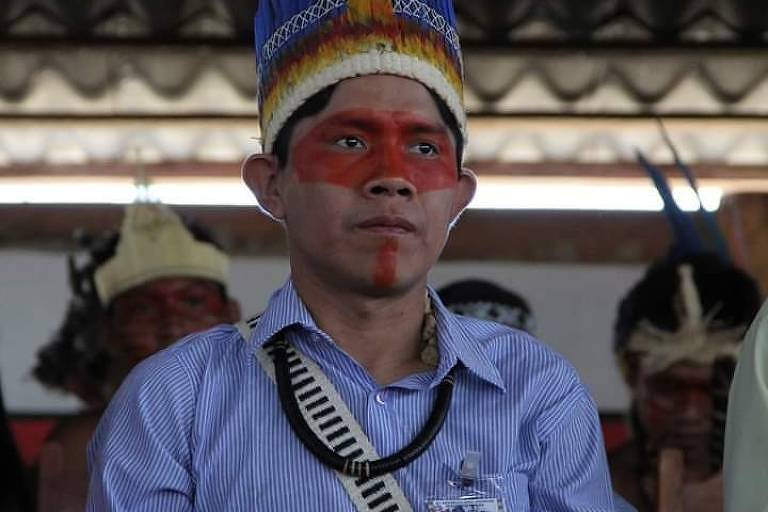By: Mario Nicacio
Article originally published in Folha de S. Paulo, on April 15, 2020. Available at: https://www1.folha.uol.com.br/opiniao/ 2020/04 / neglect-with-the-covid-19-can-exterminate-indigenous-peoples.shtml
If the new coronavirus has been worrying the white man, one may imagine how it is for us. The Brazilian Indigenous Peoples were not only decimated by the brutality of the invader, but also by diseases that came together in the caravels. When they landed here, we were more than 4 million people; currently, there are only about 900 thousand of us.
Unlike Europeans, who had already developed antibodies, our ancestors had no defense against influenza, measles, smallpox, whooping cough, tuberculosis and other diseases. In the case of Covid-19, the danger is even greater, as the whole of humanity is defenseless. The Yanomami Alvanei Xirixan was very young, he was only 15 years old. And, unlike the two previous [Indigenous] victims of the disease, he lived in the forest. His death, on April 9th, turned on the alert for all Brazilian Indigenous Peoples. We are more vulnerable than ever.

Jair Bolsonaro’s negligence with the pandemic has left the whole world perplexed. If his senselessness endangers the Brazilian population in general, for us it can mean extermination. And we have reason to believe that his attitude is purposeful. The president built his political reputation by addressing threats and offenses to minorities. We, Indigenous Peoples, have always been among their preferred targets, and the Yanomami, people of Alvanei Xirixan, are an old obsession. Bolsonaro’s first act as a federal representative, in his second year in office (in 1992), was a Bill to revoke the approval of the Yanomani territory – today beset by illegal mining, which contaminates its rivers with mercury.
The dismantling promoted by Bolsonaro to the Secretariat of Indigenous Health (Sesai), linked to the Ministry of Health and responsible for the care of over 765 thousand people, has been denounced by us since last year.
According to the last census, 306 thousand Indigenous Peoples live in the Amazon. There are villages that are five days away by boat from the nearest healthcare facility and, without SESAI’s support, the communities are forced to fend for themselves. Bolsonaro still wants to municipalize this essential service, which is currently federal, leaving us in the hands of local politicians, who do not always look for our rights.
In the Indigenous culture, there is no social isolation: up to 15 people live under the same roof. The Coordination of Indigenous Organizations of the Brazilian Amazon (COIAB) prepared an emergency plan to combat Covid-19. Among the recommendations, there is community isolation. The white man must keep his distance from our villages. In addition, there are more than a hundred isolated or recently-contacted peoples living in the Amazonian region. According to the Instituto Socioambiental (ISA), there are 86 territories with the presence of isolated Indigenous Peoples in the Amazon.

If while he was a candidate, Bolsonaro promised not to demarcate “even an inch more” of Indigenous lands, last August, already wearing the presidential sash, Bolsonaro said that “if I were a farmer, I won’t even say what I would do”, referring to Indigenous and quilombola peoples. These are words that serve as an incentive to those who invade Indigenous lands and who can take the coronavirus there.
Warnings of deforestation in the Amazon region grew 29.9% last month, according to the National Institute for Space Research (Inpe). March 2020 recorded the second highest rate of deforestation alerts for that month in the last five years, behind only 2018.
At the beginning of March, when Covid-19 did not yet dominate the news, the Yanomami leadership Davi Kopenawa already warned about the risks faced by the isolated peoples at the UN Human Rights Commission in Geneva: “I don’t know their homes, just as you don’t. I only saw them from the sky, from the plane. I never visited them on foot. We never spoke. That is why I am very concerned. Perhaps they will soon be exterminated”.
Whole cultures may disappear. They are people who have their own medicine, where even the cure for Covid-19 and new pandemics can come from.
Mario Nicacio is Wapichana from the Manoa-pium Indigenous land (Roraima), and deputy coordinator of the Coordination of Indigenous Organizations of the Brazilian Amazon (COIAB)

